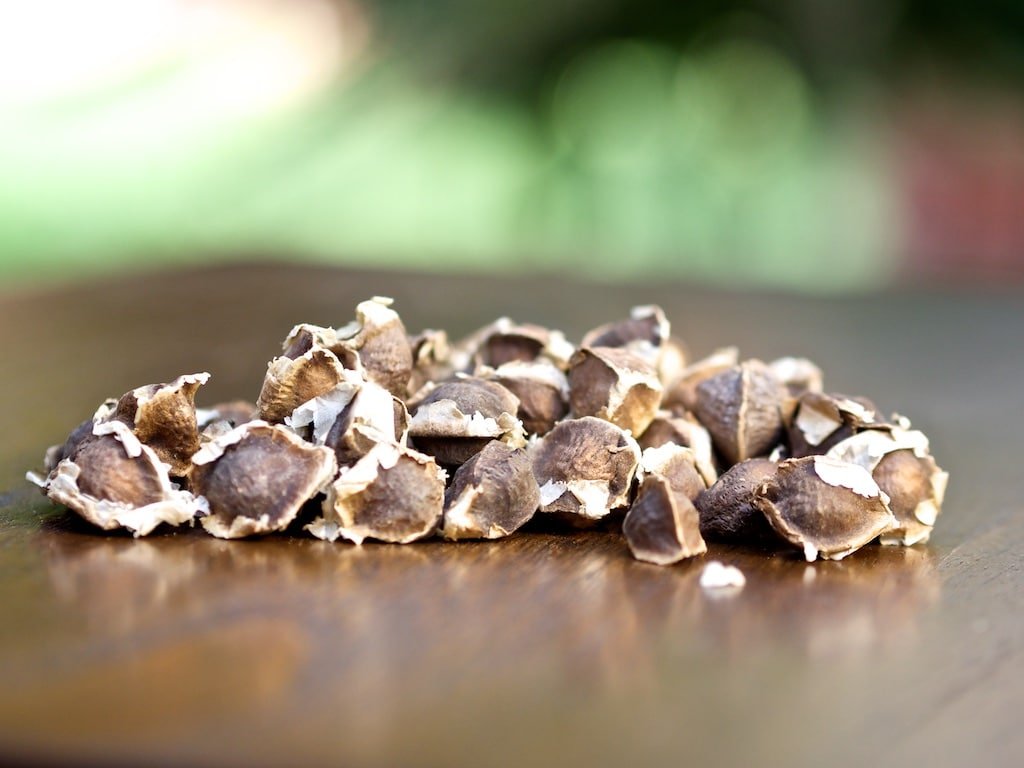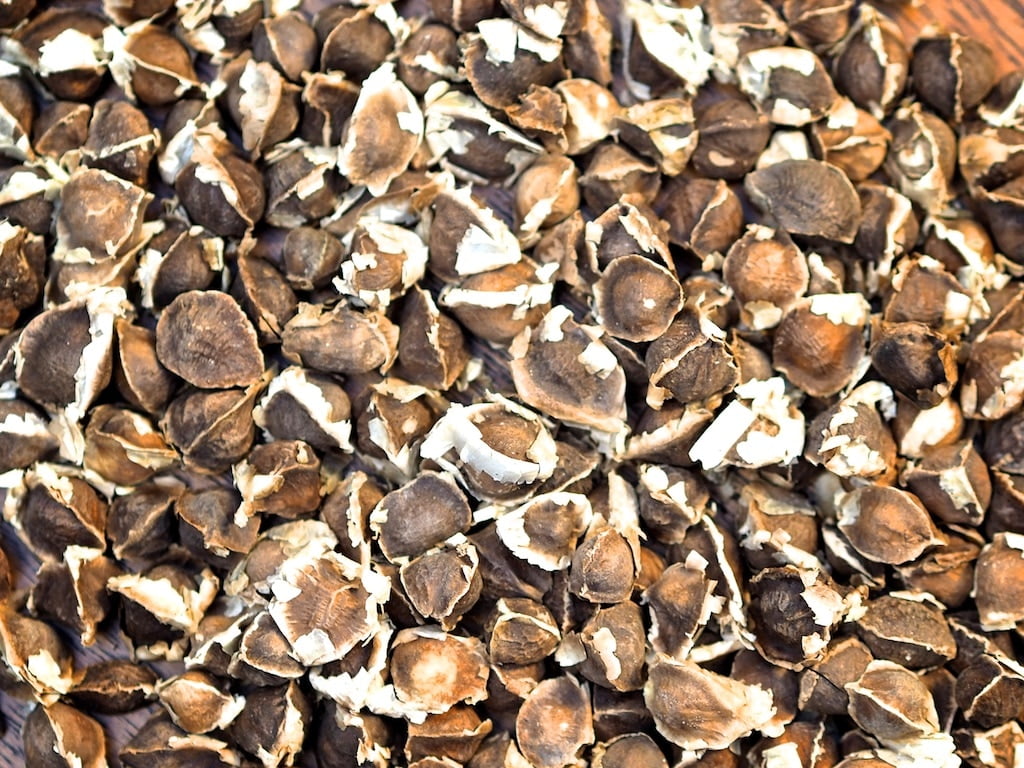Moringa oleifera, often referred to as the “miracle tree,” has gained widespread recognition for its numerous health benefits. While much attention has been focused on the nutritional value of its leaves, the seeds of the moringa tree are equally remarkable. Packed with essential nutrients and bioactive compounds, moringa seeds offer a range of potential health benefits. However, like any natural remedy, it’s important to understand both the advantages and possible side effects associated with their consumption.
Understanding Moringa Seeds
Moringa seeds are obtained from the pods of the moringa tree, which is native to the Indian subcontinent but now cultivated in various tropical and subtropical regions worldwide. These seeds are housed within the long, slender pods of the tree and are typically removed, dried, and processed for consumption or industrial use.
Nutritional Profile of Moringa Seeds
Moringa seeds are prized for their dense nutritional composition, containing:
- Proteins: Moringa seeds are rich in protein, comprising all nine essential amino acids necessary for human health.
- Fats: They are a good source of healthy fats, including monounsaturated and polyunsaturated fats, which contribute to heart health.
- Vitamins: Moringa seeds contain vitamins such as vitamin A, vitamin C, and several B vitamins, including folate, thiamine, and riboflavin.
- Minerals: They are rich in minerals like calcium, potassium, magnesium, phosphorus, and iron, essential for various physiological functions in the body.
Health Benefits of Moringa Seeds
1. Rich Source of Protein
Moringa seeds are an excellent plant-based source of protein, making them a valuable addition to vegetarian and vegan diets. Protein is essential for muscle repair, growth, and overall health.
2. Supports Heart Health
The healthy fats present in moringa seeds, particularly oleic acid, have been associated with a reduced risk of heart disease by lowering levels of LDL (bad) cholesterol and increasing HDL (good) cholesterol.
3. Antioxidant Properties
Moringa seeds are rich in antioxidants like vitamin C, beta-carotene, and quercetin, which help neutralize harmful free radicals in the body, reducing oxidative stress and inflammation.
4. Improves Digestive Health
Moringa seeds contain fiber, which aids digestion and promotes regular bowel movements. Consuming fiber-rich foods like moringa seeds may help prevent constipation and maintain a healthy digestive system.
5. Enhances Skin Health
The vitamin E content in moringa seeds contributes to healthy skin by protecting against damage from UV radiation and promoting collagen production, which helps maintain skin elasticity and youthful appearance.
6. Boosts Immunity
The vitamins, minerals, and antioxidants found in moringa seeds support immune function, helping the body fight off infections and illnesses more effectively.
7. Anti-inflammatory Effects
Compounds present in moringa seeds have been shown to possess potent anti-inflammatory properties, which may help alleviate symptoms of inflammatory conditions such as arthritis and asthma.

Potential Side Effects of Moringa Seeds
While moringa seeds offer numerous health benefits, it’s essential to be aware of potential side effects, especially when consumed in excess or by certain individuals.
1. Risk of Gastrointestinal Issues
Consuming large quantities of moringa seeds may cause digestive upset, including diarrhea, bloating, and abdominal cramps, particularly in individuals with sensitive stomachs.
2. Possible Allergic Reactions
Some individuals may be allergic to moringa seeds, experiencing symptoms such as itching, swelling, or difficulty breathing upon consumption. It’s essential to discontinue use and seek medical attention if allergic reactions occur.
3. Interference with Medications
Moringa seeds may interact with certain medications, including blood thinners and diabetes medications. Individuals taking these medications should consult with a healthcare professional before incorporating moringa seeds into their diet.
4. Risk of Hypoglycemia
Moringa seeds may lower blood sugar levels, which can be beneficial for individuals with diabetes but may pose a risk of hypoglycemia (low blood sugar) if not monitored closely.
5. Contamination Concerns
Like other parts of the moringa plant, moringa seeds may be contaminated with microbes, heavy metals, or pesticides, especially if sourced from unreliable suppliers or regions with poor quality control standards.
Conclusion
Moringa seeds are a nutritional powerhouse, offering a plethora of health benefits ranging from protein and healthy fats to antioxidants and anti-inflammatory compounds. Incorporating moringa seeds into your diet can support overall health and well-being, but it’s essential to consume them in moderation and be mindful of potential side effects.
As with any natural remedy or dietary supplement, it’s advisable to consult with a healthcare professional before adding moringa seeds to your regimen, especially if you have underlying health conditions or are taking medications. By understanding both the benefits and potential risks associated with moringa seeds, you can make informed decisions to optimize your health and vitality.
Ajigofarms is a reliable global agricultural purchase sourcing with profound expertise in the manufacturing, and exportation of food crops. We are tested, and trusted suppliers of all kinds of cash crops and food crops. Our constant supply chain solution makes exporting easy, quick, and safe, we are identified with timeliness and meeting up with deadlines. Regardless of the region you are located in worldwide, you can reliably order your Agric products and be rest assured of successful delivery.




